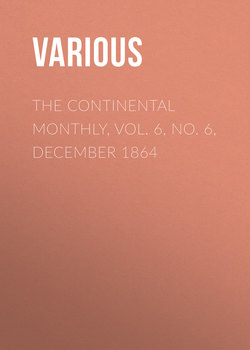Читать книгу The Continental Monthly, Vol. 6, No. 6, December 1864 - Various - Страница 2
AN ARMY: ITS ORGANIZATION AND MOVEMENTS
FIFTH PAPER
REFERENCE
ОглавлениеIn our armies the full allowances of camp equipage are not permitted. Field and staff officers have only three wall tents, and company officers only the same shelter tents as the men. The trains very rarely encamp with the regiments. The tents of the men front on streets from fifteen to twenty feet wide, each company having a street of its own, and there is much competition as to the adornment of these. Many regimental camps are decorated with evergreens in an exceedingly tasteful manner—particularly during warm weather—chapels, arches, colonnades, etc., being constructed of rude frameworks, so interwoven with pine boughs that they present a very elegant appearance.
The daily life of a camp is as follows: At an hour appointed by orders, varying according to the season of the year, the camp is roused by the reveille. The old notion that soldiers should be waked before daybreak in all seasons and all weathers has fortunately been exploded, and the reveille is not generally sounded in winter till six o'clock. In pleasant weather the men are formed upon the color line, where they stack their arms. Breakfast is the next matter in order: after that the mounting of the guard for the day and the detail of detachments for picket and other duties. The prisoners are put to work in cleaning up the camp, and squad drills occupy the morning. About noon the dinner call is sounded; then come more drills and in the latter part of the afternoon the dress parade of the regiment. This closes the military labors of the day. In the evening there are schools for instructions in tactics, and the time is passed in any amusements that may offer themselves. About half past eight the tattoo is beaten, when every one, not absent on duty, must be in camp ready to answer to his name; and shortly after, the beat of taps proclaims that the military day is ended, and lights must be extinguished—a regulation not very strictly enforced. Thus pass the days of camp life.
Very different are those assemblages of huts down among the pine forests of Virginia from the pleasant villages, the thriving towns, and the prosperous cities of the North—very different the life of the soldier from that which he enjoyed before rebellion sought to sever the country which from his cradle he had been taught to consider 'one and inseparable.'
